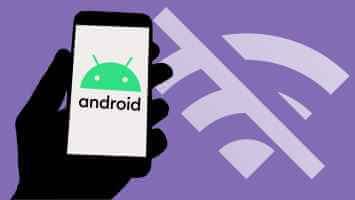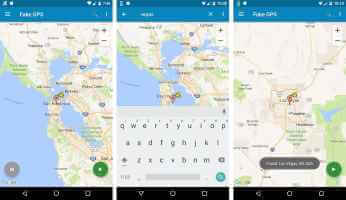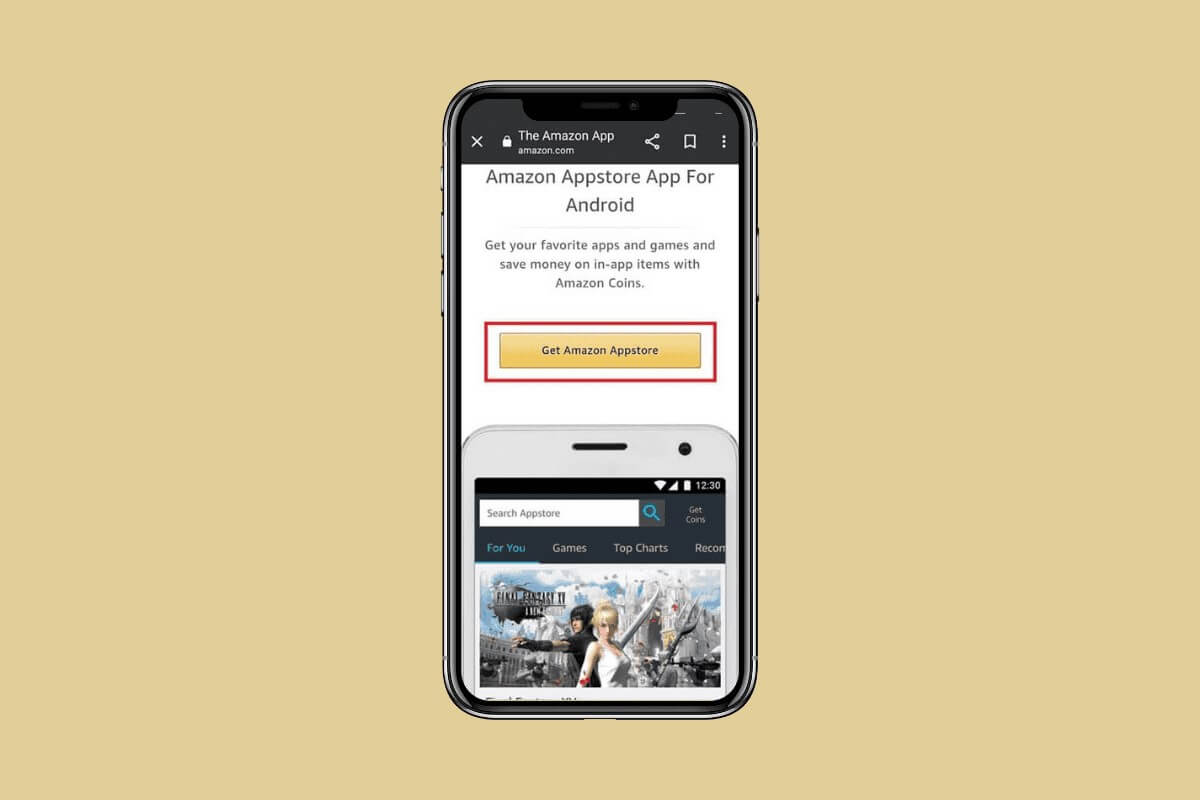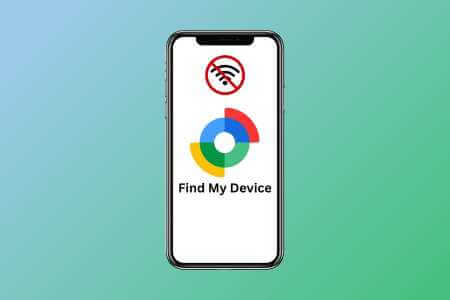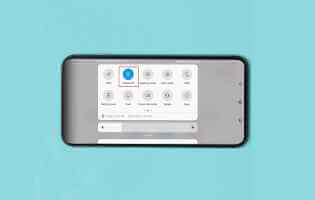Google is introducing several changes to the interface with the update. Android 12Meanwhile, Samsung continues to follow the same consistency with the One UI 4 update. Don't dismiss One UI 4 as an incremental update. Samsung packs the update with a host of customization features. Let's take a closer look at the top 10 customization features in Samsung One UI 4.

1. Apply the color palette
Although Google has implemented the Material You design language that detects color from the wallpaper and applies it across the interface, OEMs are free to offer their own version of Material You.
Samsung has added a Color Palette option to change the look and feel of One UI 4 based on background colors. Here's how to use it.
Step 1: in Notification Center Open the menu Settings.
Step 2: go to the Wallpaper and Style and select Color Palette.
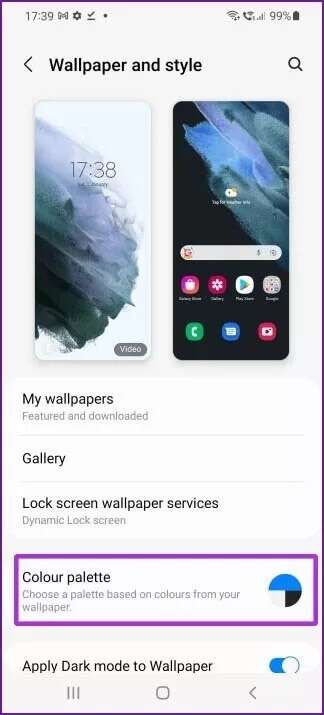
Step 3: Locate color palette Depending on the background applied.
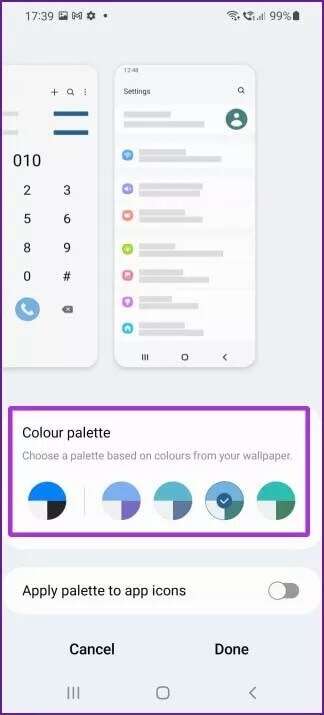
2. Apply the color palette to the app icons.
Would you like? Use Samsung apps over default Google appsYou have the option to apply a color palette to app icons as well. Note that the change will only apply to Samsung's built-in apps; it will keep third-party app icons as is.
Step 1: Open Settings and go to the list Wallpaper and Style.
Step 2: Locate color palette and enable Color palette application To switch IQONat app from the following list.

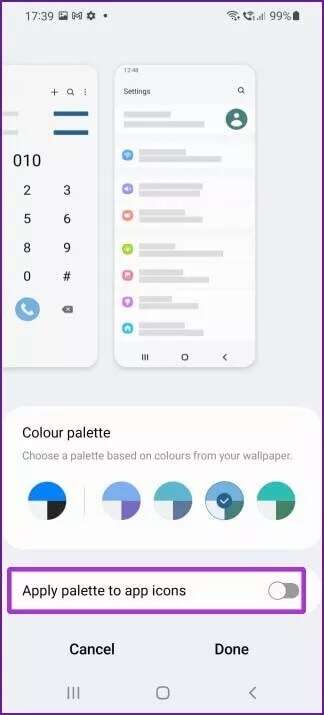
3. Apply new widgets
Widgets have received a complete overhaul in Android 12. They now come in different shapes, sizes, and rounded corners. They look much better than the previous era.
Samsung and Google have added new widgets. Here's how to find and add them to your home screen.
Step 1: Long press main screen Select a list Tools.
Step 2: Check the list of widgets New Add widgets Favorites You have to the home screen.
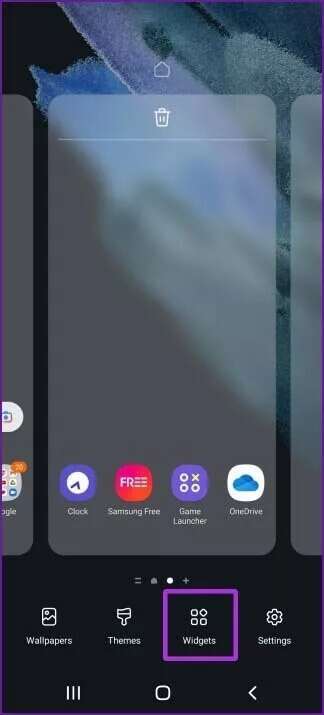
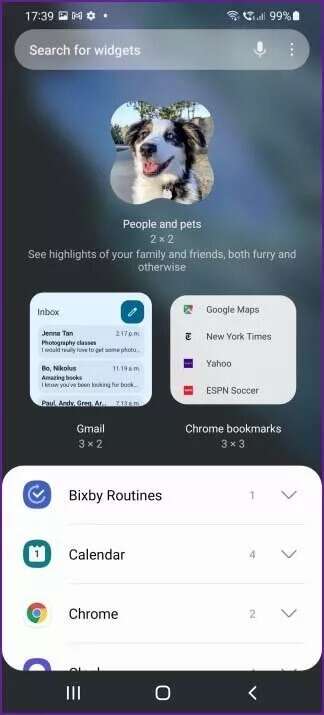
4. Change media output from the lock screen
This is more of a One UI 4 trick than a customization option, but it's still worth covering.
When music is playing, you have the option to change the media output without unlocking the phone.
Simply tap on the current media output device from the lock screen widget and select another device as output.
5. Always show new notifications on screen
To conserve battery life, you now have a lighting option. AOD (Always on Display) For new notifications only.
Step 1: Open an app Settings and go to the list screen's lock.
Step 2: Locate Always On Display.
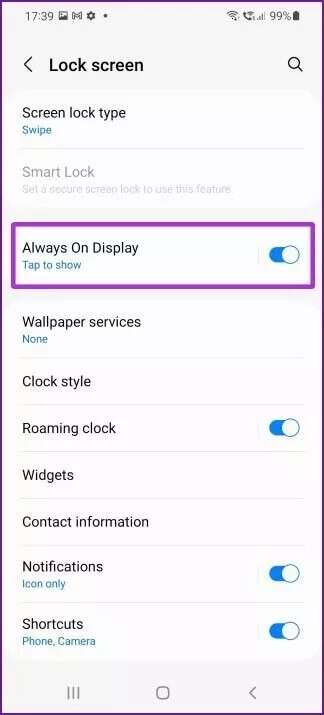
Step 3: Search for an option Show new notification and press it.
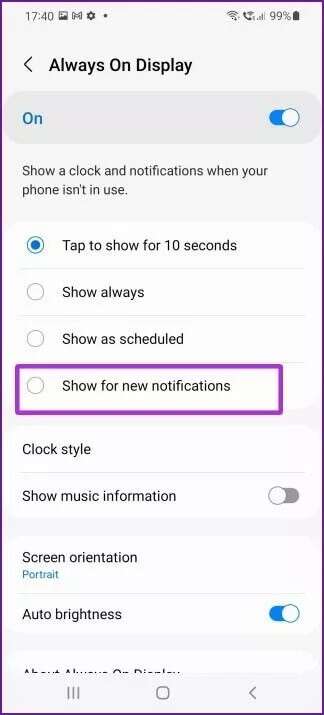
From now on, the Always On Display feature remains disabled and the pixels will only light up when there is a new notification to display.
6. Extend battery life
This is similar toImproved battery charging For iPhone and Mac, the operating system will limit the maximum charge to 85% to avoid battery wear.
Step 1: Open Settings and go to the list Battery and device care.
Step 2: Locate More battery settings.
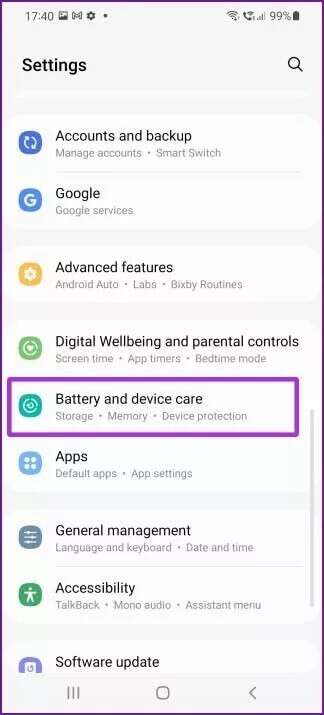
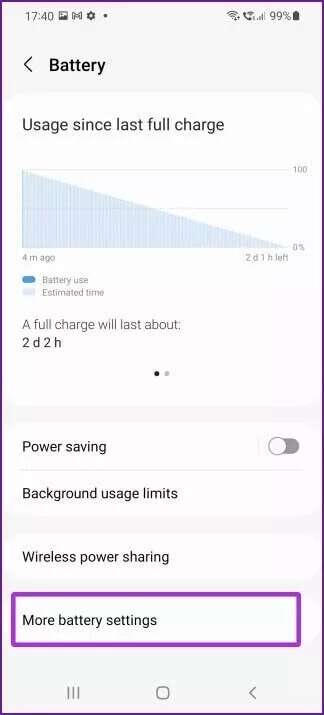
Step 3: Enable toggle Battery protection For everything to be okay.
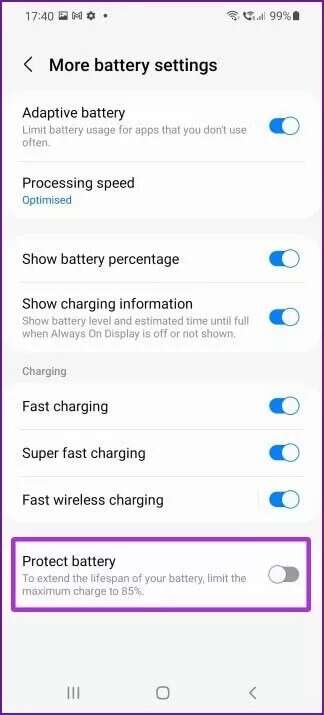
7. Disable camera and microphone access
In Android 12, privacy settings have been improved. You can now see a separate dashboard to see which apps and games are accessing your camera and microphone in the background.
You can disable camera and microphone access for such apps. Here's how.
Step 1: Open menu Samsung Settings and go to Privacy.
Step 2: Verify Camera, microphone, and location permissions The apps on your phone use them.
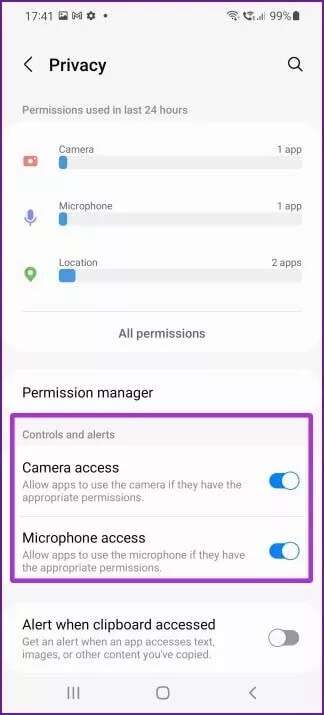
Step 3: From the same menu, you have the option to: To disable access to the camera and microphone.
8. Add camera and microphone access
If you frequently need to disable/enable camera and microphone access on your Samsung phone, you can add them as an alternative in the notification area.
Step 1: Swipe down and open Notification bar.
Step 2: Swipe left to Last switchboard Click on the icon +.
Step 3: You will see an option. To add a toggle for camera and microphone access.
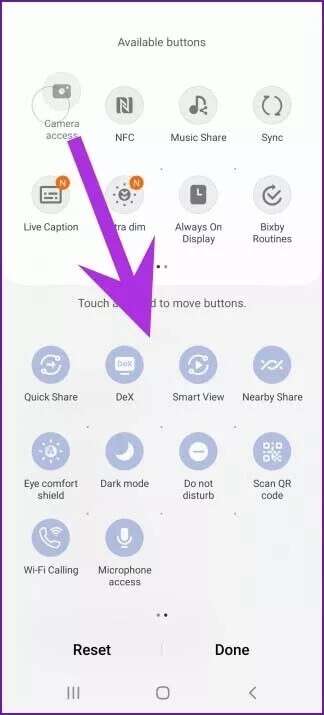
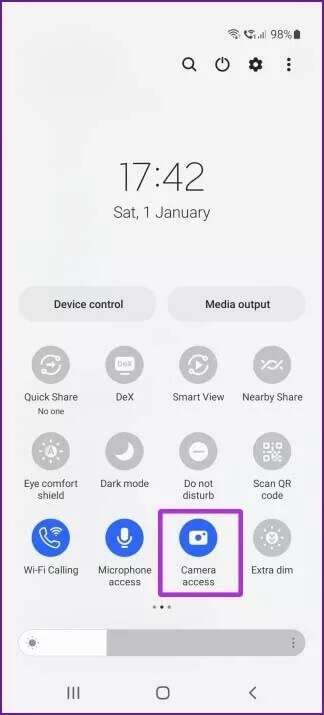
Drag and drop them into the switch list and reorder them based on your preferences.
9. Additional dim screen
Are you browsing the web or reading articles late at night on your phone? Samsung has added an option called Extra Dim, which reduces screen brightness beyond the minimum setting for more comfortable viewing.
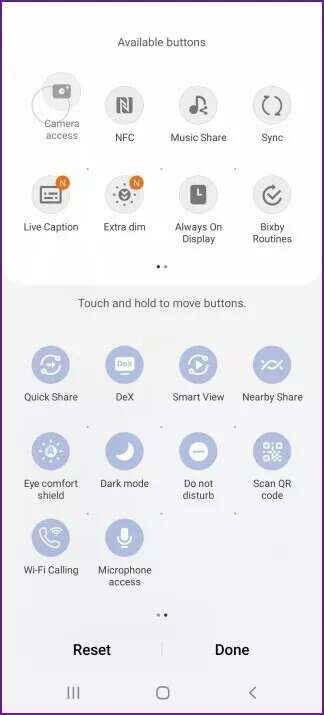
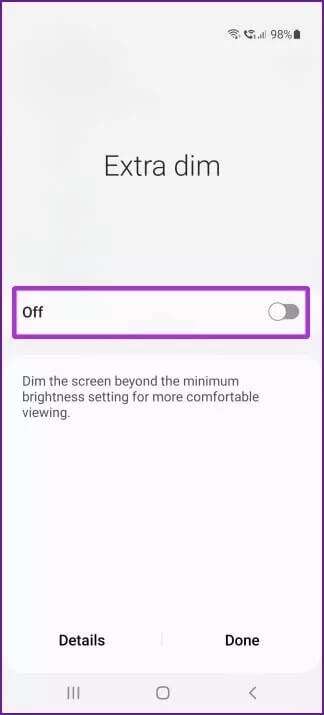
It is not available by default in the notification toggle menu. You must open the menu Notices, and click on the icon + And add the Extra Dim toggle button.Extra dim.
10. Edit image details
If you want to edit image information from the Gallery app, you can do so in One UI 4.
Open picture from app exhibition Open the menu the details. Click Release Change date, time and location And more details.
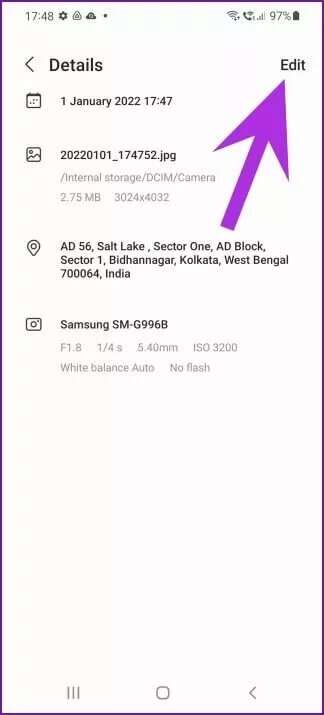
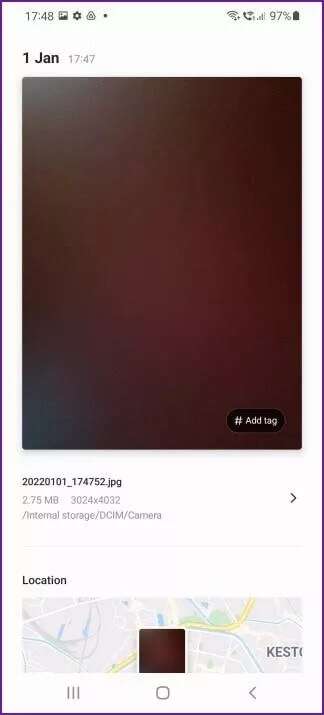
Made for you
While Samsung hasn't gone all-out with a complete design overhaul like Google, the company has done a decent job with One UI 4's customization features without compromising the existing UX (user experience). What's your favorite trick from the top 10 Samsung One UI 4 customization features listed above? Share your thoughts in the comments below.




